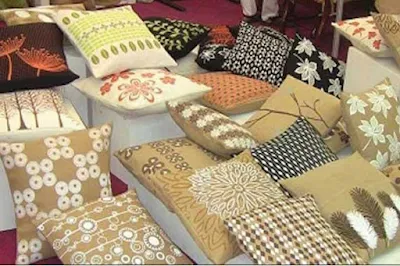Bangladesh's jute industry is set
for a significant export boom, fueled by the global push for sustainable and
eco-friendly products. As a leading exporter of jute yarn and a major player in
the overall jute and jute goods market, Bangladesh holds a natural edge in this
expanding green economy. To fully leverage this, strategically targeting new,
high-value markets with diverse, eco-conscious products is key.
Recent Export Performance
The past five fiscal years reveal
both fluctuations and strong growth, showcasing the industry's resilience and
potential. While detailed year-on-year breakdowns for all jute categories and
destinations vary, overall trends indicate robust performance:
FY 2019-2020: Jute and Jute
Manufactures brought in approximately $882.35 million.
FY 2020-2021: A remarkable surge
saw earnings hit $1161.48 million, breaking records and exceeding the $1
billion mark—a 31% increase from the previous year.
FY 2021-2022: Exports remained
strong at $1127.63 million.
FY 2022-2023: Jute Yarn exports
alone accounted for $412 million, solidifying Bangladesh's position as the
world's largest exporter of Jute Yarn.
Current Top Export Markets
Historically, Turkey, China, and
India have been the primary destinations for Bangladeshi jute products. Turkey
is the largest importer of jute yarn, while India imports substantial quantities
of raw jute, yarn, and carpet backing fabric. China remains a key buyer of jute
yarn. These markets continue to be crucial, but the industry must look beyond
them for long-term, sustainable expansion.
Opportunities for Export Growth
in New Markets
The increasing global demand for
eco-friendly products creates immense opportunities in regions actively seeking
alternatives to synthetics.
European Union (EU): With strict
regulations on single-use plastics and strong consumer demand for sustainable
goods, the EU presents a vast, largely untapped market. Countries like Germany,
France, Italy, Spain, the Netherlands, Belgium, and the UK are increasingly
seeking biodegradable packaging, shopping bags, and home decor. Bangladesh's
diverse jute products—from fashionable bags and accessories to innovative
geotextiles for construction and agriculture—are perfectly suited for this
demand. Preferential trade agreements between Bangladesh and the EU further
enhance this opportunity.
North America (USA and Canada):
Similar to the EU, North American consumers and businesses are becoming more
environmentally conscious. The United States shows potential for growth,
particularly for diversified jute products like handicrafts, home furnishings,
and specialized fabrics. The "sustainable living" trend in these
markets creates a niche for natural, biodegradable items.
Japan and Australia: These
developed economies, known for their focus on high-quality and eco-friendly
imports, offer significant potential. Japanese consumers appreciate natural
fibers and craftsmanship, making diversified jute products such as floor
coverings, fashion items, and unique home accessories appealing. Australia,
with its strong environmental awareness, is another promising market for various
jute applications, including geotextiles for land management.
To capture these new markets,
Bangladesh must prioritize:
Product Diversification: Shifting
focus from traditional bulk items to higher-value, finished goods.
Quality Assurance &
Certification: Meeting international standards and obtaining certifications for
eco-friendliness and ethical production.
Branding & Marketing:
Effectively promoting jute's natural, sustainable, and versatile attributes.
Technological Upgrades: Investing
in modern machinery to boost efficiency and product quality.
By strategically targeting these
new markets and emphasizing the eco-friendly advantages of its "golden
fiber," Bangladesh's jute industry can secure a thriving and prosperous
future.



